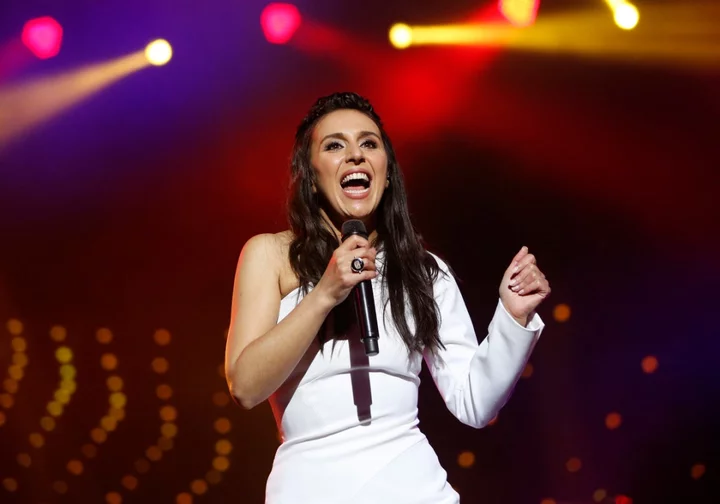Jamala: Russia puts Ukrainian winner of 2016 Eurovision Song Contest on wanted list
Russia has placed a Ukrainian singer who won the 2016 Eurovision Song Contest on its wanted list, state news agencies reported Monday. The reports said an Interior Ministry database listed singer Susana Jamaladinova as being sought for violating a criminal law. The independent news site Mediazona, which covers opposition and human rights issues, said Jamaladinova was charged under a law adopted last year that bans spreading so-called fake information about the Russian military and the ongoing fighting in Ukraine. Jamaladinova, who performs under the stage name Jamala, is of Crimean Tatar descent. She won the 2016 Eurovision contest with the song “1944,” a title that refers to the year the Soviet Union deported Crimean Tatars en masse. Her winning performance came almost exactly two years after Russia annexed Crimea as political turmoil gripped Ukraine. Most other countries regard the annexation as illegitimate. Russia protested “1944” being allowed in the competition, saying it violated rules against political speech in Eurovision. But the song made no specific criticism of Russia or the Soviet Union, although it drew such implications, opening with the lyrics “When strangers are coming, they come to your house, they kill you all and say ‘We’re not guilty.’” Read More Ukrainians who fled their country for Israel find themselves yet again living with war 10 years later, a war-weary Ukraine reflects on events that began its collision course with Russia With patriotic reggaeton and videos, Venezuela's government fans territorial dispute with Guyana

Russia has placed a Ukrainian singer who won the 2016 Eurovision Song Contest on its wanted list, state news agencies reported Monday.
The reports said an Interior Ministry database listed singer Susana Jamaladinova as being sought for violating a criminal law.
The independent news site Mediazona, which covers opposition and human rights issues, said Jamaladinova was charged under a law adopted last year that bans spreading so-called fake information about the Russian military and the ongoing fighting in Ukraine.
Jamaladinova, who performs under the stage name Jamala, is of Crimean Tatar descent. She won the 2016 Eurovision contest with the song “1944,” a title that refers to the year the Soviet Union deported Crimean Tatars en masse.
Her winning performance came almost exactly two years after Russia annexed Crimea as political turmoil gripped Ukraine. Most other countries regard the annexation as illegitimate.
Russia protested “1944” being allowed in the competition, saying it violated rules against political speech in Eurovision. But the song made no specific criticism of Russia or the Soviet Union, although it drew such implications, opening with the lyrics “When strangers are coming, they come to your house, they kill you all and say ‘We’re not guilty.’”
Read More
Ukrainians who fled their country for Israel find themselves yet again living with war
10 years later, a war-weary Ukraine reflects on events that began its collision course with Russia
With patriotic reggaeton and videos, Venezuela's government fans territorial dispute with Guyana

